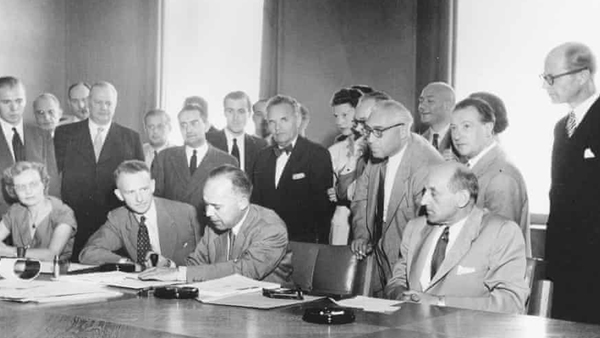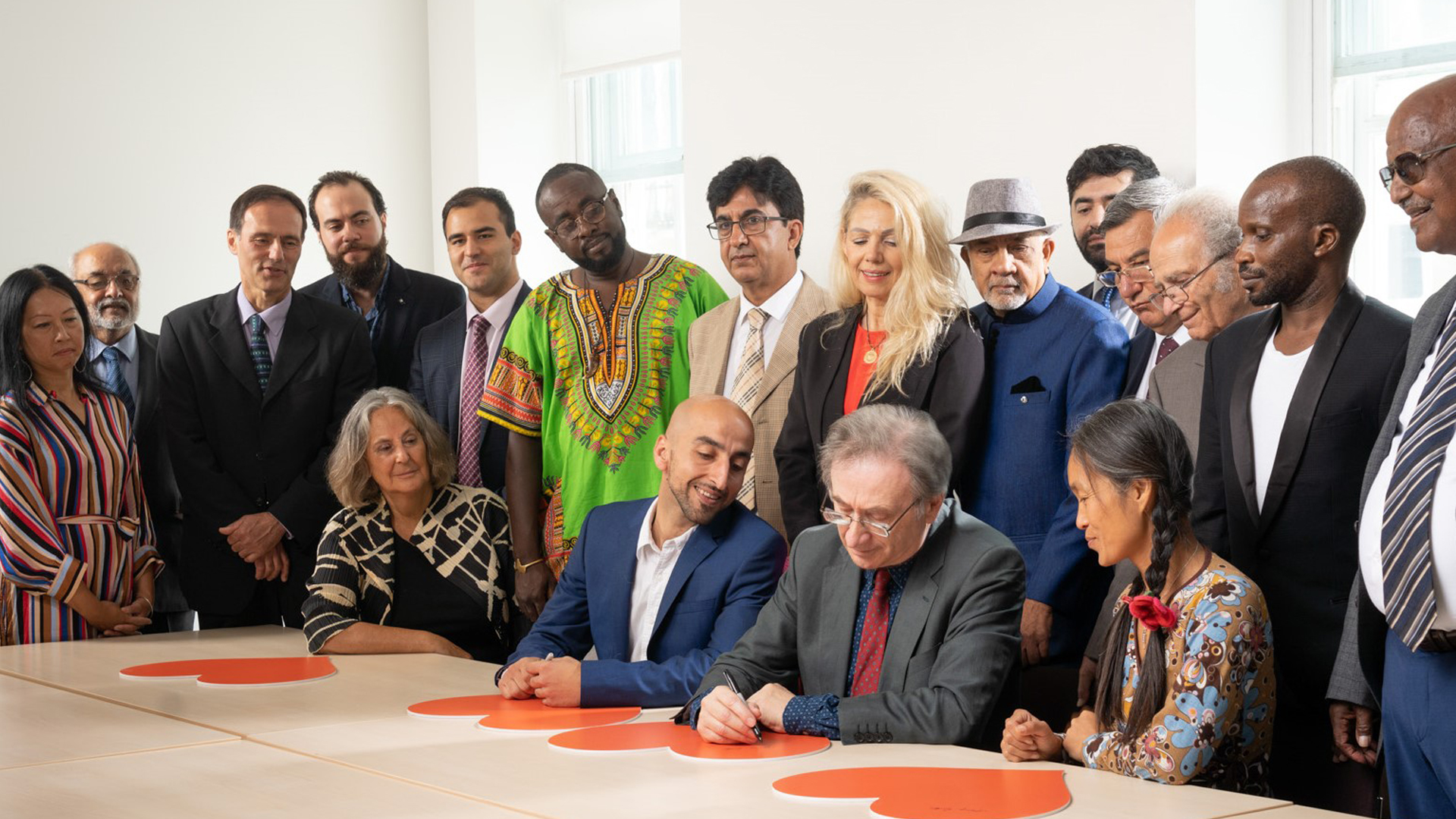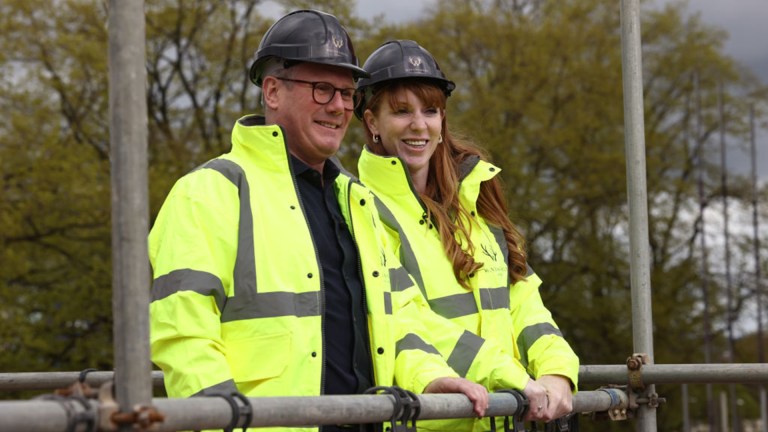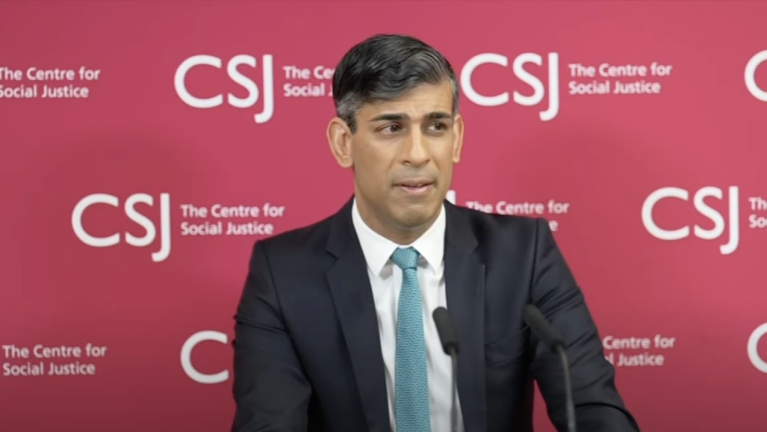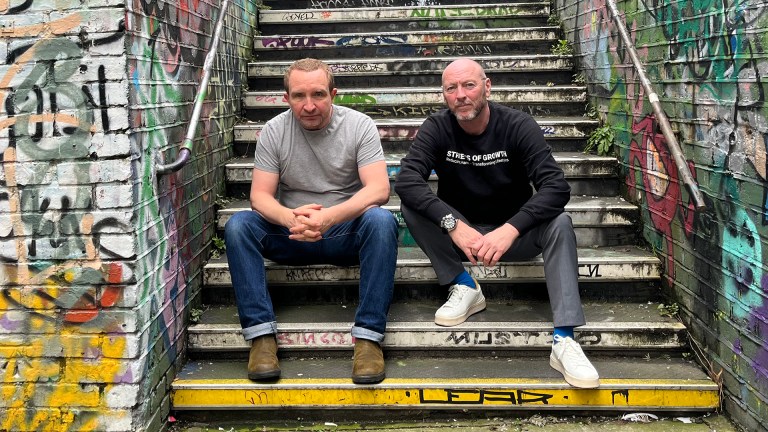“The UK has given me a home. I regard England as my very good-natured step-parent.
“Giving safety to people fleeing war and persecution was necessary 70 years ago and, I suspect, because of climate change and political situations across the world, it is more necessary now than ever.”
1960s – Gillian Slovo – South Africa
Gillian’s parents were anti-apartheid activists. They arrived in London on her 12th birthday.
“The Refugee Convention is a result of an understanding of what can happen when you don’t protect refugees – and a determination that this should never happen again.
“We’re not only celebrating the anniversary of the convention, but also celebrating Britain’s part in drawing it up and the lives that have been saved as a result.
“Ours – because now I also call it mine – was a country that recognised suffering not only among ourselves but also in the world, and which acted to rescue those who needed rescuing. Long may this humanity continue.”
1970s – Mukund Nathwani – Uganda
Mukund was 23 when Ugandan dictator Idi Amin announced the expulsion of all Asians from the country in 1972.
“Having arrived safely, people were welcoming and we thought, ‘We’ve come to the right place.’
“It’s important for Britain to continue protecting refugees because it saved my life and they’ll be saving the lives of others across the world.”
1980s – Hong Dam – Vietnam
Displaced to Hong Kong during the war in Vietnam, Hong and her family were eventually resettled in the UK.
“All I can remember of the flight from Hong Kong to England was being airsick and watching the clouds. They looked amazing, like we were in heaven.
“My teachers showed me kindness, and so I feel forever in their debt. I will never be able to do the same for them, but I can do that for other people. What goes around comes around. Maybe somebody else will help my daughters – it’s like planting seeds.”
1990s – Remzije Duli – Kosovo
In 1991 Remzije was studying medicine when Special Forces came to her university and arrested the academics. She came to the UK aged 23 and graduated in pharmaceutical chemistry in 1999.
“Being able to make people feel safe is one of the greatest achievements any country can do.
“Britain helped me with everything that I am today: all the achievements, both as a parent and professionally. As a result, I’m able to give back and help others in need.”
2000s – Aloysius Ssali – Uganda
An LGBTQ+ campaigner in Uganda, Aloysius was imprisoned and tortured because of his sexuality.
“Marking the 70th anniversary of the Refugee Convention reminds us of the obligation to protect those who are persecuted and seeking protection. It’s even more important to reflect and thank the British people who, over 70 years, have warmly welcomed refugees from different backgrounds and cultures.”
2010s – Saad Maida – Syria
The 37-year-old lives in Leamington Spa, where he is an NHS junior registrar in obstetrics and gynaecology at George Eliot Hospital.
“The convention has had a huge impact on me. I always carry my official documentation, which has ‘July 28 1951’ printed on it – a date I will never forget.
“Working for the NHS makes me proud. To then go into a pandemic and feel how we are needed on the front line – whether it’s delivering a baby with a Covid-positive woman or working without the proper PPE – we did the thing we do the best, caring for our patients.
“I am part of a big family in the NHS. Knowing we’re serving others when they’re in need is a catalyst for our own resilience.”
